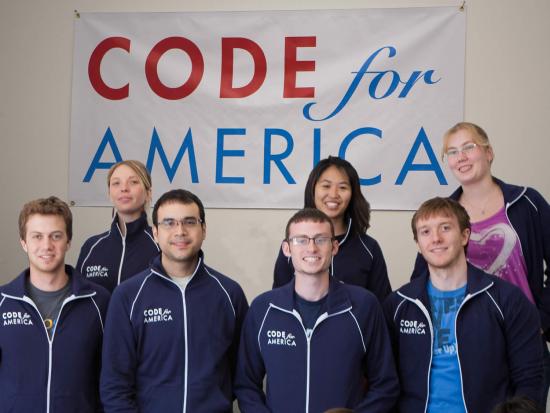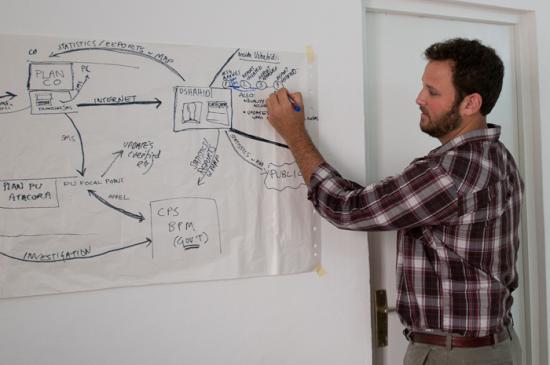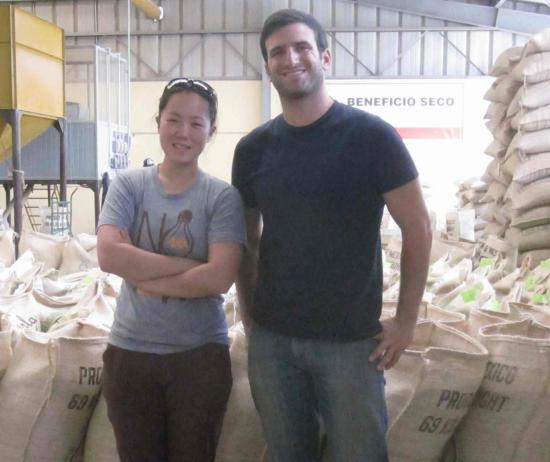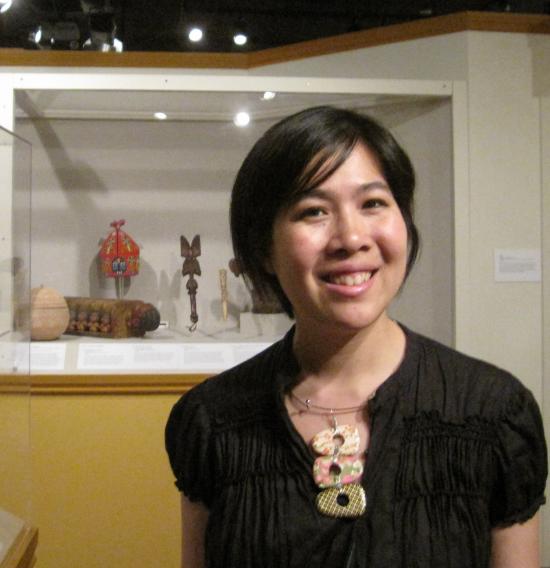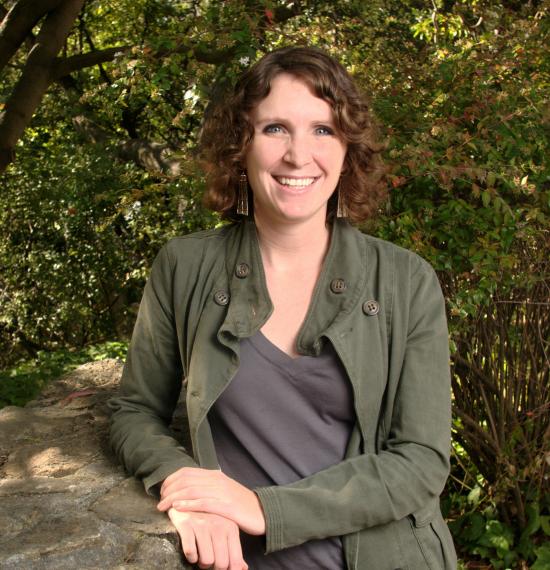“I could have gotten a for-profit, paid internship, and it would have made it easier to pay the bills,” said School of Information master’s student Karen Rustad. “But the work I’m doing now is infinitely more motivating — and much more relevant to what I want to do after I graduate.”
Rustad is spending the summer working with Code for America, a new non-profit that recruits tech-savvy, civic-minded individuals into public service to help governments work better. And Rustad is not alone; a number of I School students are bucking the conventional wisdom by devoting their summer internships to non-profit or public interest organizations, both in the U.S. and abroad.
“The I School has positioned me perfectly to contribute to this project,” said Anne Wootton, who is working with independent radio producers the Kitchen Sisters to archive their thirty-plus years of audio recordings. “The I School has given me the technical understanding that lends a broader perspective on how to meaningfully preserve their collection and make it accessible to scholars, other producers, and listeners across America.”
Students like Rustad and Wootton are finding support from the School of Information’s new non-profit internship grant. The program provides a limited number of grants for master’s students during the summer between their first and second years when they work in internships in non-profit organizations, governmental agencies, and NGOs in the U.S. and abroad.
The students are excited to apply their I School skills to causes that are important to them. “At the end of the day it is tremendously rewarding to work with people who are genuinely interested in improving circumstances in their country,” said Paul Goodman, who is in Benin, Africa, working with Plan International to develop a mobile emergency system for reporting and tracking violence against children. “The nonprofit grant this summer allowed me to return to the field and cover the significant expenses related to international travel. With the grant I wasn’t as concerned about my financials and could focus contributing to the good work of Plan USA and Plan Benin.”
“The I School grant has given me an opportunity I wouldn’t have had otherwise,” said Ariel Chait. “Because of the grant, I can apply my skills to something I care about — which is making for a great summer internship.” Chait is currently in Oaxaca City, Mexico, where he is developing a mobile-based data-collection system to assist coffee cooperatives and small-holder coffee farmers in Latin America, giving them access to financing and specialty markets.
Leslie Tom has had a similar experience. She is helping develop CollectionSpace, an open-source collections-management system for museums and research archives. “The I School’s Information Organization Lab really helped me understand the full spectrum of deployments like these,” Tom explained. “I'm the interface between the museum people and the software developers, so I need to understand the tradeoffs between function and presentation of information, as well as how everything works under the hood.”
“Our students are doing amazing work in governments and non-profits around the world,” said School of Information dean AnnaLee Saxenian. “We take seriously our mission as a public institution; we believe in expanding access to information, and the School’s non-profit internship grant program is just one part of the our commitment to the public good.”
2011 Non-Profit Internship Grant Recipients
The non-profit internship grant is supporting eight students from the MIMS class of 2012 in their summer internships:
Ariel Chait is developing mobile-based data-collection technology for Latin American coffee cooperatives, to improve their access to credit, specialty markets, and fair-trade or organic certification. This summer he is working with the CEPCO coffee cooperative in Oaxaca, Mexico, in an internship sponsored by Root Capital, a non-profit social investment fund.
Paul Goodman is in Benin, in central Africa, developing a mobile emergency system for reporting and tracking violence against children. He is working with Plan International, a child-centered grassroots development organization promoting child rights and addressing structural poverty in 48 developing countries.
Lizzy Ha is a user-interface designer for Pivot Learning Partners, a non-profit supporting school districts with research-based, cost-effective educational solutions; she is working on WY5, a social networking platform to help students connect with mentors and others.
Monica Rosenberg is working with the National Parks Conservation Association, building the technical infrastructure to support NPCA’s internal collaboration and knowledge management.
Karen Rustad and Bailey Smith are both working for Code for America, a new non-profit for tech-savvy citizens to help governments work better. Rustad is developing Code for America’s in-house web application, code-named “Secret Sauce”, which manages massive amounts of contextual inquiry and interview data.
Leslie Tom is working at UC Berkeley IS&T, helping develop CollectionSpace, an open-source collections-management system for museums and research collections.
Anne Wootton is an archival intern for the independent radio producers the Kitchen Sisters, often heard on NPR. She is collaborating with the SJSU School of Library and Information Science and the Internet Archive to develop an interactive online archive for thirty-plus years of audio materials, including rich collections of unbroadcast background materials.










